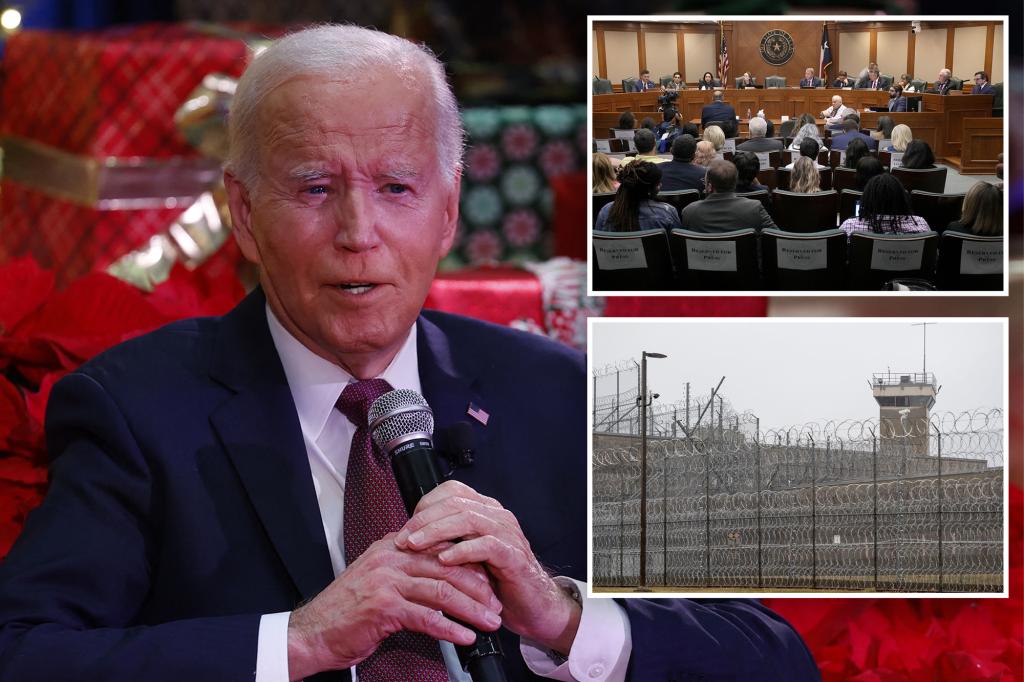The Biden administration is reportedly contemplating a sweeping commutation of death sentences for the majority of the 40 inmates currently on federal death row. This potential move, if realized, would mark a significant shift in federal capital punishment policy and reflect President Biden’s stated opposition to the death penalty. Attorney General Merrick Garland is said to have recommended clemency for almost all the inmates, suggesting that their sentences be commuted to life imprisonment. This recommendation, while not yet a final decision, provides a framework for the President to act on his beliefs regarding capital punishment. The potential commutations, according to reports, wouldn’t necessarily apply to every inmate. While the exact individuals excluded from the recommendation are not publicly known, it is speculated that high-profile cases like those of Robert Bowers, the perpetrator of the Tree of Life synagogue shooting, and Dylann Roof, responsible for the Charleston church massacre, might not be included in the clemency considerations. These cases, given their notoriety and the immense suffering they caused, could present political challenges for a blanket commutation.
The implications of such a large-scale commutation extend beyond the individual cases. This decision, if implemented, would set a precedent for future administrations and influence the ongoing debate surrounding capital punishment in the United States. It also raises questions about the future of federal death penalty prosecutions, including pending cases such as that of Payton Gendron, accused of a racially motivated mass shooting in Buffalo, New York. Whether prosecutors will continue to seek the death penalty in such cases, given the potential for commutation, remains to be seen. The potential commutation could also impact public perception of the justice system and spark debate about the appropriate punishment for heinous crimes.
The list of inmates on federal death row encompasses a range of individuals convicted of horrific crimes. Among them are individuals like Kaboni Savage, a Philadelphia drug dealer convicted of orchestrating the murders of twelve people, including four children, and Thomas Sanders, who brutally murdered a 12-year-old girl and her mother. These cases, while less publicized than those of Bowers and Roof, represent the devastating consequences of violent crime and highlight the complexities of determining appropriate punishment. Other inmates include those convicted of multiple murders, kidnappings, and other violent felonies. The potential commutation raises questions about the balance between justice for victims and the possibility of rehabilitation, even for those who have committed the most egregious acts.
The potential commutations are being considered alongside other recent acts of clemency by President Biden, including a pardon for his son, Hunter Biden, on gun and tax charges, and the commutation of sentences for nearly 1,500 individuals previously released from prison during the COVID-19 pandemic. These actions have generated significant controversy and criticism, particularly the pardon of Hunter Biden, which was perceived by some as an act of nepotism. The mass commutation of sentences related to the pandemic also drew criticism due to the inclusion of individuals convicted of serious crimes, including murder and large-scale theft. These acts of clemency underscore the political complexities surrounding presidential pardons and commutations, and they often become lightning rods for public debate.
The potential commutation of the death sentences, if it proceeds, would be another significant act of clemency by the Biden administration and would likely add fuel to the ongoing discussions surrounding the President’s use of this power. Critics argue that such broad-sweeping clemency undermines the justice system and disrespects the victims of these crimes. Supporters, on the other hand, contend that it reflects the President’s commitment to his stated opposition to the death penalty and is a step towards a more humane criminal justice system. This decision, regardless of its ultimate form, will undoubtedly have a significant impact on the national conversation surrounding capital punishment.
The potential for mass commutation of death sentences has significant ramifications for the future of the death penalty in the United States. It highlights the ongoing debate about its morality, effectiveness, and equitable application. The decision also has the potential to influence state-level decisions regarding capital punishment. While the federal government’s actions do not directly impact state laws, they can contribute to a shift in public opinion and political will. The potential commutations also raise broader questions about criminal justice reform and the appropriate balance between punishment and rehabilitation. The debate surrounding this potential decision underscores the complex and multifaceted nature of criminal justice policy in the United States.

